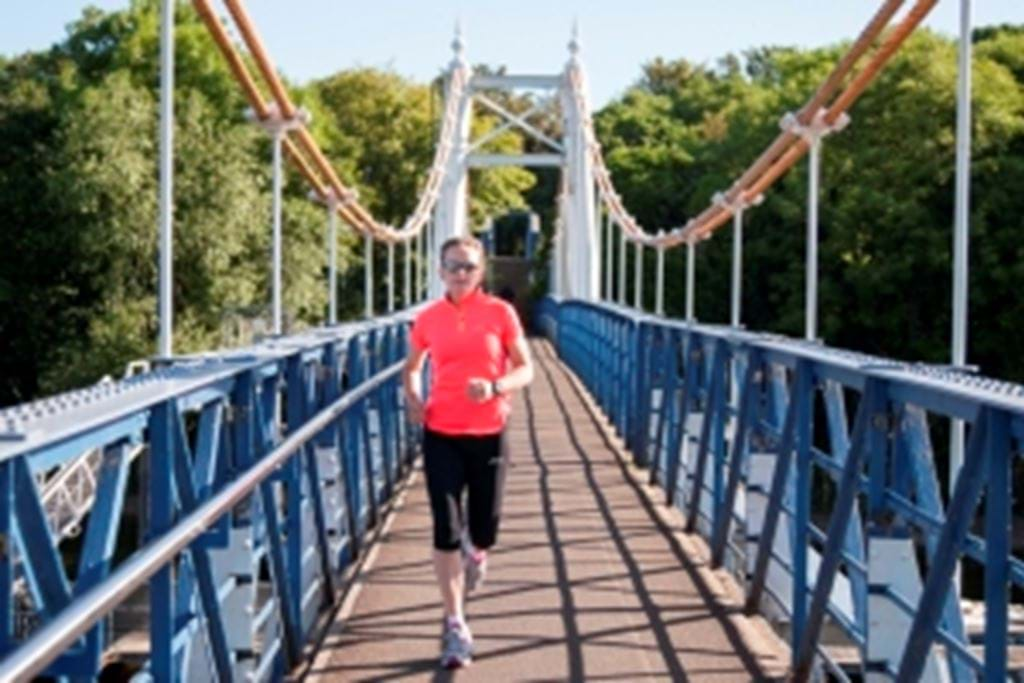Taking the next step... Mara's advice
10 June 2014

If you’ve recently taken up running, hopefully you’re enjoying the wonderful things running brings to our lives – getting out in the fresh air, feeling more energised, a sense of accomplishment, and even being able to wear those fabulous trousers which have languished in the back of the cupboard since you bought them!
Photo by marimo images
But you may also be thinking it’s time to take the next step and tackle the challenge of a race. Many runners feel they have to dive straight in at the deep end by entering a marathon. The classic 26.2 mile distance certainly has lots of appeal. But there is no need to rush into it. In fact, there’s much to be said for starting with some shorter races, and moving up to the marathon when you have more running miles in the bank.
So if you want to enter a race, where do you start? Choosing which distance to tackle is a good place to begin. If you can comfortably run continuously for 5km, then races over 10km or half-marathon are an ideal way to dip your toe into the world of races. These distances definitely call for endurance and stamina, but are also manageable for new runners. And there is plenty of choice of 10km and half-marathon races, especially during the autumn running season from September to December. So once you’ve got a race lined up, how do you make sure you’re in shape to run your best?
The most important aspect of training is consistency – doing regular training, no matter what! The human body is supremely talented, and capable of amazing things – but only if you give it a clear, consistent message: “hey, look here, we’re going to be training hard from now on, so you better get used to it, OK?!” Once it’s got that message, then it will adapt in numerous ways to enable you to run faster and further.
The key to consistent training is a programme which is challenging but realistic. It has to be challenging to stimulate improvement, but if it’s too hard, injury and fatigue will interrupt your routine. We are all individuals, and what works for one person will be different from another. So listen to your body and figure out what is the best programme for you…and then stick to it, no matter what (injury or illness aside!).
Another golden rule of training is to increase the volume or load in small amounts, for example no more than 10% per week. Your body takes time to adapt to training – both in its cardiovascular capacity (i.e. your lungs and heart), and in its muscles, tendons and other soft tissues. So give it time to adapt before cranking up the training load.
A question I often get asked is: “Should I cover the race distance in training before race day?” It’s a really important point. If you have run the whole race distance in training, that will give you confidence that you can definitely finish. But it’s not essential. A race will often bring out a better performance than we can do in training, so don’t be put off if you can’t complete the race distance beforehand. If you have run continuously for about 8km for a 10km race, or 17km for a half-marathon, the race atmosphere will carry you through those last few kilometres.
Preparing for a race may seem daunting, but having a new challenge and a clear goal to work towards, will certainly refresh your enthusiasm. And of course the best thing about your first race over any distance is that you will come away with a personal best!
Click here to find your nearest beginner's running group!
Run England beginner's groups are the perfect place to get ready for your first race. Run England is the official England Athletics beginner's running project and groups are all led by trained group leaders and will offer you a progressive routine, people of a similar ability to start running with, and lots of help and support along the way!
You can also join Run England for free to receive our eRunner newsletter full of tips, information and special offers such as a £15 Sweatshop running shoes voucher to help you start, and keep on, running.
Mara Yamauchi is a retired British marathon runner.
In April 2009, she set her personal best of 2:23:12 in the London Marathon, a time which ranks her as the 2nd fastest British female marathon runner ever. Mara came 6th at the 2008 Olympics in Beijing which equals the best place ever by a British woman in the Olympic marathon. Having spent 5 years living in Tokyo, she moved back to the UK in February 2011 to prepare for the 2012 London Olympics.
She is also a qualified Run England group leader after completing a Leadership in Running Fitness course last year before going on to do the Coaching Assistant course. She is currently in the middle of the Athletics Coach course.
Photo (top left) by marimo images
More news from RunTogether




